How to Improve Local SEO for Your Business in 2023!
13 Steps to Improve Local SEO in 2023
As more people turn to the internet to find local businesses, optimizing your online presence for local search has become increasingly important. One of the most useful tools for achieving this is Local Search Engine Optimization (Local SEO), which involves optimizing your website and online listings to rank higher in local search results. By implementing effective Local SEO strategies, you can increase your visibility and drive more traffic, leads, and sales for your business.
To achieve the best possible Local SEO ranking and attract new customers, there are simple steps you can take. In this guide, we'll cover everything you need to know to improve your Local SEO, from optimizing your website and online listings to using local keywords, building backlinks, and leveraging customer reviews.
By following these strategies, you can establish a strong online presence and effectively advertise your business to potential local customers.
Understanding Local SEO
The first step in optimizing for local search is understanding how it works. Local search is a way for people to find businesses in their local area when they search on Google or other search engines. The search engines use various factors to determine which businesses to show in the search results, including the user’s location, the relevance of the business to the search query, and the business’s prominence and online reputation.
1. Figure Out the Best Relevant Keywords for Your Local Business
To achieve the best possible local SEO ranking, it is crucial to use local keywords in your website content and meta tags. Local keywords should include the name of your city, town, or region to help improve your local rankings. However, it's important not to overuse keywords, as this can harm your rankings.
To develop an effective content strategy, spending enough time on keyword research is essential. This research can help you identify your competition, target keywords that are suitable for your industry, and find the keywords with the highest search volume. Incorporating these keywords into your website's content and meta tags can help boost your rankings in local search results.
Keyword Research Tools
There are many tools you can use to do keyword research, including the following free tools:
Google Keyword Planner is an excellent tool for keyword research, but there is a catch. In order to use the tool, you need to have a Google Ads account. Read our previously published blog learn how to do keyword research and how to optimize your blog or web page.
Manual Keyword Research
2. Optimize your Google Business Profile
To get noticed by Google and potential customers, it's important for local businesses to set up and optimize their Google Business profile (formerly known as Google My Business or GMB). This free tool from Google helps users find local businesses through Google Maps and is one of the first things users see when searching for a company on Google. GMB signals such as proximity, contact information, categories, and updated content are used by search algorithms to analyze and determine where your business is shown to people in your area. Click this link to get started!
To ensure your business is listed, verified, and managed correctly on Google, it's crucial to set up and optimize your GMB listing. This involves providing accurate information about your business, including your name, phone number, location, descriptions, photos, and business hours. Additionally, GMB profiles include Q&A sections, which allow potential customers to ask questions that you, as the business owner or representative, can answer.
Optimizing your GMB profile is also a critical component of local SEO. By regularly updating your listing with fresh content, encouraging customer reviews, and ensuring accurate information, you can improve your rankings in local search results. Overall, GMB is an essential part of any local SEO campaign and should be prioritized as part of your local search strategy. Read our blog on how to optimize your GMB profile.
Here’s how to optimize your GMB listing:
- Claim and verify your listing
- Fill out all the information, including your business name, address, phone number, and hours of operation
- Choose the most relevant categories for your business
- Add photos and videos
- Post like you post on Facebook ot other sociaa media
- Encourage customers to leave reviews
3. Create & Optimize Your Yelp Listing
Your Yelp local listing is important because Yelp is one of the most important consumer review site for many types of businesses and it currently receives high priority from the Google search engine. Some of the voice search assistants including Siri are using data and online reviews from Yelp as well.
Many small business owners do not approve of Yelp's algorithms. However, according to 2020 updated statistics: "Yelp averages more than 178 million unique visitors every month across its mobile, desktop, and app versions. It also generates 28 million monthly mobile app unique users. " Instead of fighting Yelp, join in and encourage your clients to write reviews by having a direct Yelp link on your website.
Here’s how to optimize your Yelp listing:
- Claim your business on Yelp by creating an account
- Verify your business ownership by providing basic information, such as your business name, address, and phone number.
- Complete your business profile by adding photos, a detailed description, and information about your business hours, services, and products.
- Encourage customers to leave reviews by adding a Yelp badge or link to your website and social media profiles, and by providing excellent customer service.
- Respond promptly and professionally to both good and negative client feedback.
- Regularly check and update your company's contact information, such as your address, phone number, and website address.
- Include relevant keywords in your business name, description, and categories.
4. Create & Optimize Your Bing Places Business Listing
Bing Places for Business is a free Bing service that enables businesses to add their listings to Bing. Add your local business here and make sure customers always find the right information about your business.
If you already have a Google My Business account you can import the data from it into Bing or you can add you business manually.
Bing will use this listings to show your listings to people searching the Bing search engine or Bing maps. According to Wordstream: "126 million unique US users performed 6 billion searches on the Bing network in March 2019, according to ComScore data. Today, Bing controls 36% of the US desktop search market." So, it is imperative that you have your business listed with Bing Places.
Here’s how to optimize your Bing listing:
- Go to the Bing Places website and sign in using your Microsoft account or create a new account.
- Click "Add New Business" and enter your business name, address, and phone number (NAP).
- Complete your business profile by adding photos, videos, business hours, and a detailed description of your products or services.
- Select categories that are pertinent to and truly reflect your company.
- Add your website URL, social media profiles, and any other relevant information about your business.
- Encourage customers to leave reviews.
- Include relevant keywords in your business name, description, and categories.
5. Optimize for Voice Search
With the continued rise in popularity of speech-enabled devices like smartphones, smart speakers, and virtual assistants, improving local SEO for voice search is becoming more and more crucial.
Users often use voice search to ask natural language questions in a conversational tone, and search engines frequently give preference to relevant, local results that are correct. Therefore, when customers ask for suggestions or information about businesses in their region, those who optimise for local SEO are more likely to show up in the voice search results.
Some tips on how you can optimize for voice search:
1. Claim, Complete & Optimize Google My Business (GMB) listing
2. Encourage Customers to Review your Business
3. Submit to Directories Feeding Voice Assistants
6: Optimize Your Website for Local SEO
When analyzing your website for local rankings, various on-page factors are considered. One of the most important factors is the use of relevant keywords strategically placed in your page titles, content, and throughout your website. This helps search engines identify the relevance of your site to specific areas and industries.
Additionally, it is essential to include vital details such as name, address, and phone number (NAP) on your pages, as Google uses this information to determine proximity details for your rankings.
Another crucial on-page factor for local SEO is mobile-friendliness. In 2023, 30% of all Google mobile searches will be related to location, making it crucial to have a website that is easily accessible and fast on mobile devices. Optimizing your pages for local search can make it easier for potential customers to find your business when they are looking for products or services nearby.
Overall, on-page factors play a significant role in determining your local search rankings, and optimizing your website for them can help your business stand out from the competition.
In summary do this to optimize your page for local search:
- Include your city and state in your website’s url title tag and meta description
- Create local content, such as blog posts about local events or news
- Make sure your website is mobile-friendly
- Use local schema markup to provide search engines with more information about your business, such as your address and phone number
7. Build Additional Business Listings
Today, online directories and citations have replaced the traditional Yellow Pages. Local citations are an effective way of ensuring consistent information about a business is available online and acquiring local backlinks from reputable and authoritative websites. Directories and citations are used by searchers to find products, services, and contact details, while search engines rely on them to confirm critical business information.
Business citations are online references to a company's name, address, and phone number (NAP) on different websites and business directories like Yelp, the Yellow Pages, and Google My Business. Additional information about the company, such as its website address, operating hours, and client testimonials, may also be included in these mentions.
In summary do this to build citations for local search:
- Create a list of local directories, review sites, and other relevant websites where you can submit your business information.
- Ensure that your business NAP (Name, Address, Phone number) is consistent across all directories and review sites.
- Submit your business information to high-authority directories such as Google My Business, Yelp, and Bing Places for Business.
- Claim and verify your business listings on major directories and review sites to gain more control over your business information.
- Monitor and update your business information regularly, especially when you move to a new location or change your phone number.
- Use tools such as Moz Local, Neustar/Localeze, Uberall or Yext to manage your business listings and monitor your local SEO performance.
Business citations are a key factor in local SEO, as they help search engines verify the accuracy and legitimacy of a business's NAP information, and also indicate to search engines that the business is active and engaged within the local community.
8. Get More Reviews
Positive online reviews are crucial for a business's success in local SEO. Customers often rely on online reviews to assess a business's trustworthiness and legitimacy before making a purchase. Positive reviews not only impact potential customers' decision-making process but also enhance local search ranking factors in 2023. The total number, frequency, diversity, and quality of reviews generated for the business are critical ranking signals that Google considers.
Encouraging satisfied customers to leave positive reviews and ratings on platforms such as Google Maps, Yelp, Glassdoor, and Trip Advisor is a crucial part of a robust local SEO strategy.
Here are some ways to get some genuine reviews:
- Have a “Review Us” button to major review sites in the footer of your website
- Asking personally for feedback or reviews at the end of a transaction or performed service
- Provide Opt-in email subscription at the time of service and request feedback shortly after
By having more positive reviews, businesses can rank higher in local search results, which contributes to their success. Reviews have become such a hot commodity among businesses that they allow them to achieve more space on the results page. A five-star rating and a long list of positive reviews from satisfied customers can make a business stand out from lower ranked competitors.
To get more reviews, businesses should make it a habit to ask their clients or customers to write detailed reviews after a particular job or service. Direct links to review sites, including GMB, should be provided to make the process easy for them. As businesses accumulate more positive reviews, their reputation and space on the results page grow, building their reputation within their local community.
9. Establish Local High-Quality Links
References and links from other well-established businesses bring huge value when it comes to Google's algorithms.
Some good ways to get these references include:
- List your business on different online directories including your local Chamber of Commerce and Better Business Bureau.
- Collaborate with bigger companies/influencers so that they can link back to you.
- Use your community relationships as a means to establish credibility with regards to the quality of your product or services.
- Do research on other companies to see what kind of links they have to see if there's a chance you can get those same links, too.
As you can see, not all links are creating equal. Focus your time and effort on organization with a high SEO link authority like your local Chamber of Commerce, Better Business Bureau and local community organizations and charities.
10. Post Regularly on Your GMB page, Facebook, and Other Social Media Platforms
Another good strategy is to post regularly on the many social media resources you have at your disposal. This will show potential customers how active you are in your community, and that you care about building personal trust with your customers.
Post regularly on GMB, Facebook, LinkedIn, Twitter or Instagram by using blog posts, social media updates, advertisements, and announcements about anything new that’s happening with your business. And always remember to add hashtags! Get the most-used hashtags here.
How to Create Images for Posts
While it might seem like a daunting task to either find the right photos or edit your photos for your posts, don't worry we have the solutions for you!
One easy to use site that might be of interest to you is a website called Canva. Canva is a simple to use website that allows you to design photos and videos for your website or any other thing you might need them for. It's as simple as creating an account, selecting the design size or type, finding a photo or uploading your own, and resizing it to fit your needs. Another good website to use if you are in need of photos is Pexel, which allows you to find free stock photos for you to use. You can even find a picture on Pexels, and then resize it on Canva!
One thing to note about images used in posting: It's more worthwhile to use professional photos taken in your business, rather than random photos you might take on your phone or camera. While they are more expensive, they definitely help a lot!
How to Find Out the Right Hashtags and How to Use Them
While using whatever hashtags may come to mind may be the most simple course of action, finding and using the correct hashtags can be a great benefit for your posts, whether it be on Instagram or Twitter.
So how can I go about finding out which hashtags to use? Here are some tips:
- Identify your target audience and the topics that are relevant to them.
- Use social media listening tools such as Hootsuite, Hashtag Finder, Google Trends, Sprout Social, or BuzzSumo to monitor hashtags that are popular in your industry.
- Research your competitors' social media accounts to see what hashtags they are using.
- Use Instagram's search function to find related hashtags that are frequently used by your target audience.
- Avoid using irrelevant or overused hashtags, as this can harm your credibility and reach.
With these simple tips and sites you are well on your way to the top of the search list!
11. Create a Web Page for Each Product and Service
Though it seems easier and more efficient to list all of your products and services on one page, it actually does you more harm than good. Because search engines don’t distinguish among various brands specific to one field, having too much information can actually cause you to drop in their search engine rankings.
Furthermore, some businesses that have various locations but offer only one type of service can use location as the focal point for each page of their website. For example, if you run a pizza delivery service with locations in California, New York, and Massachusetts, then you would be encouraged to label each page of the website with the name of the specific business location.
Most of these Local SEO improvement strategies are easy to implement. Check our blogs for step-by-step procedures on the Local Business First website.
12. Create a Local Content Marketing Strategy
Creating and sharing locally relevant content can have a positive impact on your local search rankings. Customers enjoy connecting with brands on topics that are relevant to their community. Search engines prioritize websites that provide high-quality content to users, making local content an effective way to improve local search rankings.
Local content encompasses a wide range of materials, such as blog posts, news articles, videos, graphics, and event announcements that relate to a specific area. By including relevant phrases and location-based terms in your content, you can attract both users and search engines, leading to improved local visibility for your business.
Use these for a great strategy for content marketing:
- Blog posts about local events or news
- Guides to local attractions or neighborhoods
- Participation in local fairs and fundraisers
- Interviews with local business owners or community leaders
- Reviews of other local businesses
13. Send Out Personalized Newsletters to Your Local Clients
The primary goal of newsletters for businesses is to maintain relationships with your existing customers and clients. Newsletters aren’t intended to generate new clients right away! A newsletter will bring repeat customers to your business, as well as increase your brand recognition. You can still attract potential clients with your newsletter, but not directly. Let's say you offer a download of useful tips on your website and you require an email subscription for that download. Sending personalized monthly newsletter to your subscribers, could generate leads and ultimately new clients.
Conclusion
Optimizing for local search can be a game-changer for your business. By following the tips outlined in this guide, you can improve your local SEO and attract more local customers.
Remember to keep your information consistent across all platforms, respond to reviews, and provide high-quality and engaging content that incorporates local keywords. With more and more consumers turning to the internet to find local businesses, it's essential to take advantage of all the tools available to ensure that your business is visible and accessible to potential customers.
By optimizing for local search, you can increase your online presence and establish your business as a trusted and reliable local resource.




